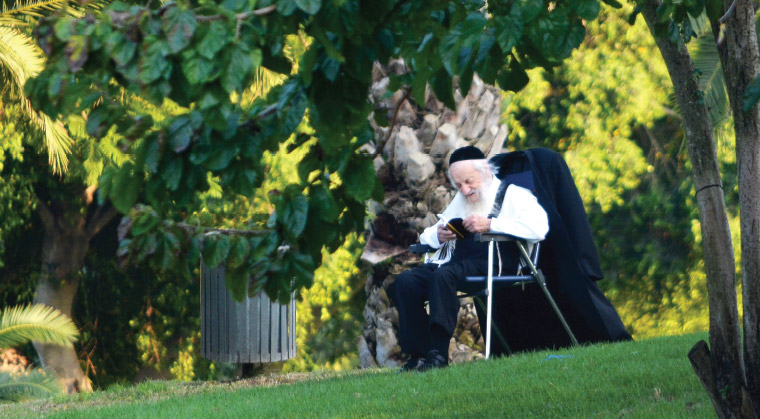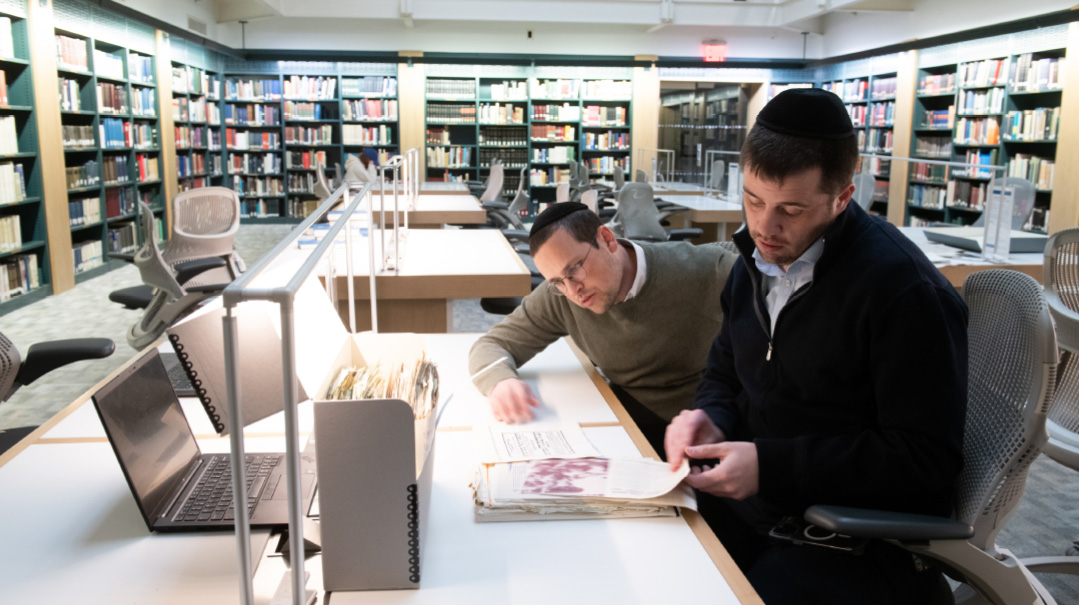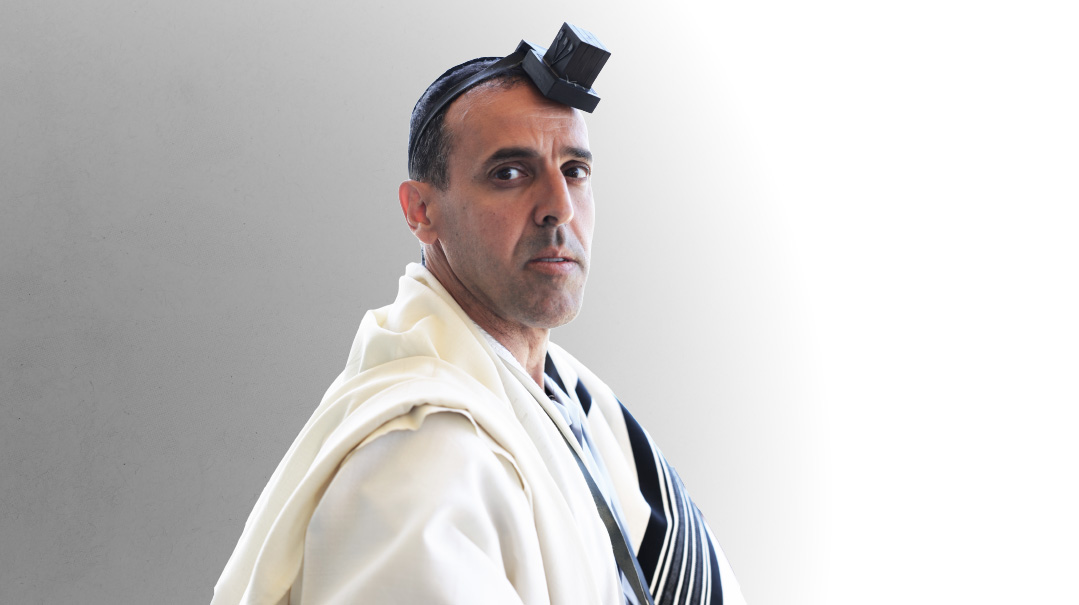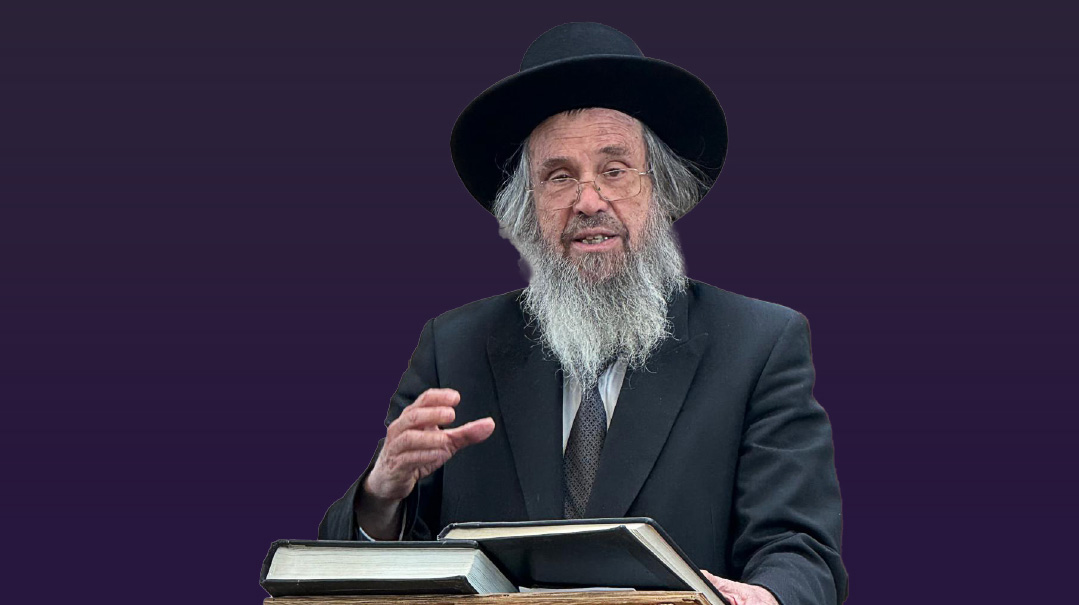When a Gadol Is the Guest
| March 28, 2018What happens when a gadol is a guest at your hotel or vacation spot? Hotel owners and vacation coordinators discuss the challenges and rewards

Photos: Shuki Lehrer, Mishpacha archives
The Venues
Palm Springs, California
Rabbi Yonoson Denebeim is the Lubavitcher shaliach in Palm Springs, California. He’s been arranging vacations since the 1980s, when he first noticed gedolim liked to frequent the location. Palm Springs doesn’t have a beach, so there are minimal tzniyus issues, but it still provides a warm respite in the winter. Since he started in his early twenties, Rabbi Denebeim has relied on the Lubavitcher Rebbe’s advice: to treat all of his venerated vacationers as if they were his own rebbe.
Gaya Luxury Holiday Resorts, Austria and Italy
Avi and Gilat Fine-Chen managed hotels for several years before launching their own program, Gaya, in 2017. Gaya, which stands for Gilat, Avi, Yud, and Hey, partners with tourist companies in Israel and rents a variety of locations, and some prominent guests travel with the Fine-Chens wherever their program is being hosted that season. The Fine-Chens’ real last name is Chen, but when they moved to Vienna, it proved too complicated for locals to pronounce, so they changed it to Fine, and they now go by both names.
The Austrian Alps
Hinterglemm, a remote village in the Austrian Alps, is popular in the winter thanks to its exciting ski slopes. But what’s a hotel owner to do during the summer, after the snow has melted? Sixteen years ago, Stefan Sommerbichler, owner of the Alpen-Karawanserai Hotel, came up with a solution: to turn his hotel into a kosher venue. Though a Christian himself, he had gotten to know the frum world during his years in Yerushalayim, where he volunteered in the Austrian Hospice in the Old City. Ever since his alpine hotel turned kosher, it has become a magnet for Yidden in the summertime, including gedolim, rabbanim, and rebbes.
Grindelwald, Switzerland
In the early 1970s, Meir and Rus Wagner moved to the Swiss town of Grindelwald, where Rus’s parents ran the Silberhorn Hotel. The picturesque town and its breathtaking views made it one of the most popular tourist destinations in the country, and the Wagners regularly hosted gedolim and influential people in the Jewish world. The hotel’s guestbook is filled with the signatures and warm words of thanks from rabbanim such as the Ponevezher Rav, the Erloyer Rebbe, and ybdlch”t Rav Yisrael Meir Lau.
Bournemouth, England
Bournemouth is a seaside resort on England’s southern coast where many rebbes have come to visit over the years. It is often a short-term destination — some gedolim will go just for Shabbos — but the relaxing effect of the sea air is worth even a short visit.
W
hen Rav Yitzchok Hutner vacationed in the Silberhorn Hotel in Grindelwald, Switzerland, the first thing he asked to do was to come down to the kitchen and speak to the proprietors, Meir and Rus Wagner.
“After we spoke for a few minutes, Rav Hutner said he was now ready to go to his room,” Mrs. Wagner recalls. “One of his talmidim asked him, ‘Doesn’t the Rosh Yeshivah want to speak with the mashgiach?’ He assumed Rav Hutner would want to make sure the kashrus was up to his standards. Until this day I remember Rav Hutner’s answer: ‘I don’t care who the mashgiach is. I care who the baal habayis is. After I speak to the baal habayis, I have no need to speak with the mashgiach.’ ”
Haskamos like that are part of the privilege of hosting the leaders of Klal Yisrael. The Wagners are members of an elite group who get such endorsements regularly, because they facilitate the vacations of gedolim. Such arrangements require extra work — anything from arranging nighttime excursions to obtain a glimpse of the moon for Kiddush Levanah, to juggling the logistics when two rebbes visit simultaneously — but all of these hoteliers jump at the chance to make these necessary respites happen.
Rabbi Yonoson Denebeim moved to Palm Springs in 1980 as a shaliach at the behest of the Lubavitcher Rebbe. Although he was sent to be mechazek Jews who were far from Yiddishkeit, when winter arrived he discovered that Palm Springs was a popular destination for frum Jews looking to catch some sun during the cold winter months.
“I saw a Yid with a yarmulke walking down the street and thought the sun was playing tricks on me,” he remembers with a laugh. “When I heard he wasn’t the only one there on vacation, I decided to form a minyan.”
After word spread that there was a shtibel with daily minyanim in the Californian desert, it attracted rabbanim, rebbes and roshei yeshivah. The first rebbes to arrive were Rav Shloime Halberstam of Bobov, the Bostoner Rebbe, and ybdlch”t the Munkacser Rebbe.
Rabbi Denebeim, who was barely in his twenties when he started his shlichus, knew he needed guidance for how to handle the yearly influx of so many luminaries — and he knew where to turn: his rebbe. “The Rebbe told me, ‘Zolst zei opgeben di geherige kavod’ — I should honor them as I would my own rebbe. And that is what I have been doing ever since.”
With no beach to cause tzniyus issues, many gedolim prefer Palm Springs to other popular winter destinations. Rav Yisroel Belsky used to go there for a week or two, as did Rav Moshe Tendler and Rav Naftali Friedler of Toronto. Regular guests are the Viener Rav, Rav Naftoli of Spinka, and Rav Aharon of Satmar, as well as the Rebbes of Chernobyl, Skulen, Skolye, Pupa, Kossov, and more.
“Sometimes I don’t even know that a certain guest is an adam chashuv,” Rabbi Denebeim says. “But, baruch Hashem, all these manhigei Yisrael come to Palm Springs in the winter, and they’re amazed that there is Torah and yirah in such a beautiful, warm environment.”
For others, the summer is when the esteemed guests arrive. The Alpen-Karawanserai (Alpine) Hotel, a popular ski resort in Hinterglemm, Austria, serves as a vacation venue for numerous gedolim in its off-season.
Stefan Sommerbichler, the owner of the hotel, is proud to talk about his guests. Rav Shmuel Wosner ztz”l used to spend his summers there, and the Rebbes of Toldos Aharon and Nadvorna, as well as the Liezher Rav, Rav Yehoshua Zev Meisels, and Rav Avraham Yona Schwartz, a senior rav in Vienna who also provides the hechsher for the hotel, are regular summer visitors.
“I often don’t know who is a rebbe or a special guest,” says Sommerbichler. “I was once standing at the front desk when this imposing personality walked toward us to check in. I went over to welcome him and introduce myself, as I do with all guests. When I inquired as to his name, he answered, ‘Lau.’ It was only later that I discovered that this was Rav Yisrael Meir Lau himself!”
Avi and Gilat Fine-Chen, owners of Gaya Luxury Holiday Resorts, have managed several hotels in Europe during the summer months, working in partnership with Israeli tourist companies. While most of the hotels they rent are filled with Yidden of every kind, the Fine-Chens have also had the honor of hosting the Toldos Avraham Yitzchak Rebbe during the summer for the past three years.
Another popular holiday destination is Bournemouth, a seaside resort located on England’s southern coast. The kosher Normandie Hotel in Bournemouth has hosted many rebbes over the years, although some visitors to the resort lodge in a privately owned home near the hotel and use the hotel’s shul.
Bournemouth has hosted the late rosh yeshivah of Lucerne Rav Yitzchak Dov Koppelman, the Sanz-Zhemigrader Rebbe, and Rav Meir Bransdorfer, zichronam livrachah. Among other chashuve guests are the Sanzer Rebbe from Netanya, the Boyaner Rebbe, the Pshevorsker Rebbe from Antwerp, and the Rebbes of Belz-Machnovka, Nadvorna, Modzhitz, Chernobyl, Kretshenif and Rachmistrivka. Rav Burech Nussen Halberstam, dayan of Satmar, is a regular visitor as well.
The Accommodations
Hosting several gedolim at the same time can prove logistically challenging. Stefan Sommerbichler once solved this issue by providing the Nadvorna Rebbe with the penthouse of the hotel as well as the hotel’s shul, and giving the Toldos Aharon Rebbe his own lodging in a nearby inn. The downstairs halls of the inn are used for the Rebbe’s shul and for tishen on Shabbos, while the upstairs quarters are divided into the Rebbe’s sleeping quarters, kvittel shtib, and rooms for his family and gabbaim.
Before the hotel underwent extensive renovations several years ago, it was much smaller and didn’t have enough room to accommodate a rebbe. “Back then I didn’t know who the current Nadvorna Rebbe was,” Stefan says. “When he requested help with renting a house for his father, the previous Nadvorner Rebbe, I offered them two flats in my parents’ apartment building, not realizing that we were hosting a grand rabbi.” Still, the apartments proved very comfortable, and the Rebbe ended up spending several summers in that house.
But without a doubt, it was Rav Wosner who left a lasting impression on the hotel owner. The posek hador would arrive accompanied by five people, and he got a whole section on the hotel’s first floor. “In these cases, I am no businessman,” says Stefan, laughing. “I don’t even consider it a loss to give away ten hotel rooms for five guests. I saw his stay as a windfall and felt the blessing it brings. For this, we are ready to go all out and accommodate a rabbi’s needs.”
According to Gilat Fine-Chen, when the Toldos Avraham Yitzchak Rebbe comes to one of their hotels, his family and chassidim get an entire wing, with rooms for the Rebbe to sleep, learn, eat, and spend time with his family.
“Every week two different children come to sit with their father,” says Mrs. Fine-Chen. “This is their designated time to discuss anything they wish. Back home they have to share him with all the chassidim.”
The Meals
People usually come to a holiday resort to get away from it all. But since that means getting away from cities with an established Jewish infrastructure, providing delicious kosher meals is a complicated challenge for the hotel owners, especially when the guests are very particular about their standards of kashrus.
When the Toldos Avraham Yitzchak Rebbe is a guest at the Fine-Chens’ hotel, his food is prepared separately. “All the ingredients, including flour and sugar, get shipped in from Eretz Yisrael,” Gilat explains.
On Thursday afternoon, after the hotel’s chefs finish cooking the Shabbos meals for the hotel guests, everyone clears out and the kitchen is turned over to the Rebbetzin, who manages to cook and bake the entire Shabbos for the Rebbe in that short time span.
In Hinterglemm, the hotel is under the hashgachah of Rav Schwartz from Vienna. When Rav Wosner first came, he announced, “I trust and eat from this hechsher with closed eyes.” The gadol would usually dine in his own quarters, but on Shabbos morning he would make Kiddush in the dining hall with the other guests.
“During the week, the Nadvorna Rebbe eats the regular food prepared by the kitchen staff,” Stefan says. “His special Shabbos dishes are prepared by the Rebbetzin in a separate kitchen.”
The Toldos Aharon Rebbe, on the other hand, has his food prepared at the inn.
“We purchased a portable stove that gets locked away in a storage room from summer to summer, so there are no issues with kashering every year,” explains Stefan, who’s picked up on halachos and terminology after years of having so much Jewish company.
Other items added to storage are all the utensils for the Rebbe, as well as his chair and his own mattress, since he won’t sleep on a used one.
The Shabbosim
Some chassidim of the Toldos Avraham YitzchAk Rebbe travel for hours to spend a rare Shabbos up close with the tzaddik. And guests who have never been in proximity with chassidim get to know this culture for the first time at the tishen.
“All the hotel guests eat the meal at the same time and then go to the tish,” Avi Fine-Chen explains. “It doesn’t matter what kind of affiliation — chassidish, litvish, masorti, or not frum—they all come and stand in awe. For many it is their first contact with a rebbe, and it makes a strong impact. Some of them stay until 2 or 3 am. Afterwards I get to hear amazing comments — how their opinions have changed about chassidim.”
For many, the summer Shabbosim in Hinterglemm are the only opportunity to spend time with the Toldos Aharon Rebbe. “The accessibility with this tzaddik you get during the summer is unparalleled,” says a regular guest. “To daven in the Rebbe’s shtibel and hear his Krias HaTorah — I wait for it all year!”
Bournemouth has become a popular place for rebbes and rabbanim to spend a Shabbos hisachdus with talmidim and chassidim. At such a time the Normandie Hotel is closed off to other guests and the group takes over all the facilities, though the shul remains accessible to everyone. Last month, the Rebbe of Belz-Machnovka spent a Shabbos with 150 chassidim. Although rebbes are usually hosted in a privately owned home while the chassidim lodge in the hotel, the Rebbe chose to stay with his chassidim.
The Atmosphere
One thing all the hosts agreed on: There’s a special ruach when a gadol stays in your venue.
“Hosting a rebbe is not a simple matter,” shares Gilat Fine-Chen. “You are kept busy 24/7. But it’s worth it — it’s an honor. There is something special about it, there is a different spirit when you have such a personality in the hotel.”
“There is something in the air when the gedolim are here,” agrees Rabbi Denebeim. “For the chassidim who come with their Rebbe, it’s definitely a time of hamelech ba’sadeh, where they feel the Rebbe becomes much more approachable.”
The Denebeim family enjoys a special closeness to their prominent guests, says Rabbi Denebeim. “A chassid once told me that he finds it unfair that my kids dreyen zich unter di fis of all the Rebbes, while when he, a chassid, wants a few minutes with his Rebbe it becomes a whole big deal.”
But this special atmosphere only lasts as long as the temperatures are pleasant in this southern Californian town while the rest of the country is blanketed in snow. When winter morphs into spring, the Rebbes make their way back home to their chassidim. “The difference in atmosphere when they all leave is deflating,” Rabbi Denebeim comments. “Before Purim der oilem iz farshvunden gevoren — everyone vanished — and I was left without a minyan.”
The impact Rav Wosner made on Hinterglemm seems to still hover over the hotel and its owner.
“Rav Wosner made everyone feel special,” Stefan relates. “Every morning after davening, he passed the front desk and greeted the staff. At the end of his yearly stay, he would thank and bless the staff. Even the young receptionist who had no inkling about his greatness once inquired, ‘Who is this old man? Every time he passes the lobby, I get goose bumps and need to cry.’ ”
Having a gadol hador on the premises is a bonus for the guests as well. Stefan recalls one summer when Rav Wosner was there at the same time as a group of almanos. “When Rav Wosner asked if there was anything he could do for me, I decided to seize the opportunity and asked if he would speak to these women and give them some encouragement. The gabbaim of course were frantic, how could I dare make such a request? But Rav Wosner immediately agreed and insisted I be there too.”
Stefan is still clearly moved today when he recalls the speech. “He spoke to them like a father and gave them chizuk. At times he switched to his impeccable Hochdeutsch. I am not sure the women understood everything — Hochdeutsch is similar to Yiddish, but not the same — but they felt the meaning from his voice and demeanor. There is no word in German for this — it was simply moiredig. There was not a dry eye in the room, including my own.”
The Tefillah
When a gadol goes on vacation, his Torah and tefillah accompany him.
The three regular minyanim in Palm Springs are always conducted according to the standards of Lubavitch. But at other times throughout the day, Rabbi Debenheim leaves the shul at the disposal of the visiting rebbes, should they choose to form their own minyanim according to their nuschaos.
“All the rebbes come to our shul,” say Rabbi Denebeim. “Every chassidus, every kind of Yid, feels comfortable — Ki beisi beis tefillah yikarei l’chol ha’amim.”
When several rebbes are there are the same time for Shabbos, the aliyah for shishi usually gets auctioned off to whichever chassid wants to bid highest for his rebbe. But when there is a senior rebbe, Rabbi Denebeim will honor him with shishi, although he still gives chassidim the opportunity to bid for the honor.
“We once had Reb Shloime Bobover and the Munkacser Rebbe at the same time,” Rabbi Denebeim recalls. “Being that the Bobover was much older, I was going to honor him with the aliyah. As usual, we auctioned it to give chassidim the opportunity to buy it for the Rebbe. But a Munkacser chassid insisted on bidding for his rebbe. It became a bit unpleasant, but then the Munkacser Rebbe announced that he was bidding one thousand dollars to be mechabed the Bobover Rebbe. His chassid didn’t dare outbid his rebbe.”
In one of the first years of his shlichus, Rabbi Denebeim was faced with an unprecedented dilemma. On Leil Shabbos Shekalim, the gabbai of the Bobover Rebbe approached him about the next day’s yotzros. That surprised him, because in Lubavitch they recite yotzros only on Yamim Noraim.
“I explained that I personally couldn’t change the nusach, and I couldn’t consult with my Rebbe or dayan since it was Shabbos,” he says. “I felt terrible, but I was only a shaliach and had the responsibility to maintain my post. But when I saw how the Rebbe’s face fell, I couldn’t bear it. He was such a gentle person, kindness poured out of his very being. I decided to go out on a limb, and I said I would agree, on condition the Rebbe said the yotzros himself. The Rebbe’s face lit up and he agreed, although he was not usually the baal tefillah.”
Rabbi Denebeim didn’t sleep for two nights after that for fear he had done the wrong thing. During a call on an unrelated matter with the Lubavitcher Rebbe’s secretary, the shaliach confided what he had done and asked for the Rebbe’s guidance. “Zolst du zogen Yoinoson, er zol shlofn rohig [Tell Yonoson he should sleep peacefully] — I would have done the same thing,” was the Rebbe’s answer. “This gave me guidance for how to handle such matters in the future,” says Rabbi Denebeim.
Some requests can only be fulfilled by locals. For instance, there was the time a rebbe vacationing in Hinterglemm wanted to recite Kiddush Levanah and the only way to catch a glimpse of the moon was to drive up a mountain in the Alps, after the barriers had been closed.
“I had to ask a ranger to open the barriers,” Stefan explains. “Of course, I had to find a way to explain why it was so vital to go to all this trouble.”
Needless to say, the gates were unlocked and the Rebbe and his chassidim were able to be mekadesh the moon.
The Torah
In the winter months the kol Torah echoes throughout Palm Springs, thanks to the efforts of Rabbi Denebeim, who uses the opportunity of hosting so many gedolim to ask them to deliver shiurim. Among those who have given shiurim are Rav Belsky, Rav Naftali Friedler, the rosh yeshivah of Yeshivas Ner Israel Toronto, and Rav Yosef Mordechai Baumel, rosh yeshivah of the Crown Heights Yeshiva.
“One year I was mechabed Rav Baumel to say a devar Torah between Minchah and Maariv,” says Rabbi Denebeim. “The next day I asked Rav Friedler to speak. He got up and tried to shlog op Rav Baumel’s shiur. The next day Rav Baumel did the same and so it continued, turning into a pilpul. Then Rav Naftoli Weiss, the Spinka Rebbe, got up and tried to shlog op them both. It was beautiful!”
“The Rebbe makes sure to take walks every afternoon,” says Avi Fine-Chen, “and uses these walks to learn with his chassidim. We schlep a table and chair out into the countryside so the Rebbe can sit down a while and learn.”
“One would think when a rebbe goes on vacation he really relaxes,” Stefan comments. “Yet the rebbes continue to dedicate all hours of the day and night to learning or helping others. The Nadvorna Rebbe learns most nights standing so he doesn’t fall asleep. Sometimes I just whisk the Rebbe away in my car to the forest, so he can sit and learn without anyone disturbing him.”
To provide some privacy for the Toldos Aharon Rebbe, who spends hours learning on his balcony, Stefan had a special mechitzah built to shield the Rebbe from the street.
The Mikveh
A vital amenity for a gadol is accessibility to a mikveh. This is another reason Bournemouth is so popular among rebbes, since it has a mikveh that is considered very mehudar. In Hinterglemm as well, the hotel has a mikveh taharah.
“I make sure to arrange which rebbe goes at which time, so that each one has sufficient time and no other rebbe is left waiting,” Stefan explains. “Although no rav or rebbe would ever let anyone wait.”
When the crowds in Palm Springs started to grow bigger, Rabbi Denebeim decided to build a mikveh and make the resort an even stronger draw, especially for rebbes. The plan succeeded to such an extent that he recently decided to expand his facilities.
“My shtibel has capacity for 70 people,” he says. “This year, during the height of the season, I had between 200 and 300 people davening in shifts every day! We’ve bought a new building that is five times larger, and hope to procure enough funds to finish our new shul soon.”
Last year the Fine-Chens accomplished a big feat in Italy, when they arranged for a visiting rebbe to toivel every morning.
“We were determined to make it happen,” says Avi. “We brought in an expert on mikvaos from Eretz Yisrael. It was a long process and quite complicated, but we managed to turn the swimming pool into a kosher mikveh.”
Special Requests
Sometimes special requests need special solutions.
Rav Wosner, who was makpid on keeping his hands clean, required a portable sink, which Stefan had someone build.
The Fine-Chens hired a carpenter to construct a bimah, amud, and two aronos kodesh, one for the main shul and one for the rebbe’s shtibel. “We also bought a rebbishe chair,” Avi says. “All these items get stored away from summer to summer.”
The Boyaner Rebbe, like all descendants of the Ruzhin dynasty, davens in a sectioned-off space next to the shul. When the Rebbe spent a few days at the Normandie in Bournemouth, the hotel built him a special room in the lounge so he could daven separately.
And should you wonder if the hotel owners have a special request of their own, they do: that the rabbanim and rebbes continue to come back every year, bringing Torah and kedushah to their hotels and resorts
(Excerpted from Mishpacha, Issue 704)
Oops! We could not locate your form.













